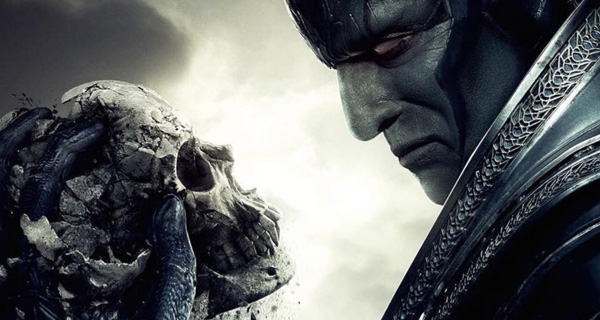One of my film professors once told me that you can accurately judge the quality of a movie from its opening scenes. I don’t believe that this is always true, but when a movie like X-Men: Apocalypse comes along and opens with a scene that’s both unjustifiably grotesque and so over the top that it’d feel out of place in a video game? Maybe I should’ve started preparing for the end times from the first few minutes.
In the months leading up to its release, each trailer for this film felt like the next horseman of an apocalyptically bad experience. The movie itself even seems to predict its own fate: at one point a character walks out of Return of the Jedi and remarks, “the third one’s always the worst.”
This was most likely intended as a jab against X-Men: The Last Stand — the third movie in the original X-Men trilogy- but it ironically applies fittingly to X-Men: Apocalypse — the third movie in the rebooted trilogy.
Bryan Singer, the man behind the first two movies in the old trilogy (hence his jab at the third) and the last two movies in the new trilogy, directs this latest installment. His original X-Men and X2 were the first comic book adaptions to prove that superhero movies could also be adult, mature works of art. They were perhaps the admirable precursors to the glut of superheroes invading screens nowadays. With his latest installment, however, Singer falls victim to some of the most prevalent pitfalls of modern superhero filmmaking. His attempt to catch up to the effects-driven extravaganzas of today leaves us with a movie that’s shy of being a mess.
X-Men are the characters. Apocalypse is the stakes. X-Men: Apocalypse is a fight between the two in more than just the title.
It’s not as bad as I expected it to be — Singer still has a few tricks up his sleeve, albeit well-worn ones— but it’s easily the worst of the new trilogy and one of the weakest of the eight X-Men films in the franchise. It’s a movie of two halves: the X-Men half and the Apocalypse half.
On the one hand, we have the almighty ensemble cast, the X-Men team. The new cast continues to be delightful and diverse. The likes of James McAvoy, Jennifer Lawrence, and Nicholas Hoult continue to honor the actors that portrayed their characters before them while simultaneously putting fresh spins on the heroes. More recent newcomers, such as Sophie Turner (Game of Thrones) as Jean Grey and Tye Sheridan (indie films with one-word titles like Mud and Joe) as Cyclops, breathe even more rejuvenated air into the lively cast. And of course, Evan Peters is back as Quicksilver to steal every scene he’s in.
Scenes that feature different factions of the team interacting are the most involving, largely due to the strength of the cast and their earned chemistry. The severely heightened stakes — I’ll get to those in a second — add a substantial sense of urgency to their relationships. The screenplay does them no favors though: like Days of Future Past, which told an similarly complicated story, the dialogue only serves forwarding plot instead of adding depth to character. The cast just overcomes it.
Michael Fassbender’s Magneto remains the beating heart of this trilogy. Not only is Fassbender a fantastic revelation of an actor who could add miles of depth to any character, Magneto is easily the most complex and tortured individual in the franchise. The start of X-Men: Apocalypse digs into this torment with verve… but then Apocalypse himself ruins everything.
Apocalypse the villain and his apocalyptic machinations are the weights that intermittently drag this movie to the depths of a CGI ocean. Apocalypse’s powers are ill defined (he can magically build or destroy… anything?), he’s so overblown as a tremendously evil ultra-villain that it’s embarrassing to watch, and his latex suit looks remarkably fake. What a waste of Oscar Isaac.
When he gets his plastic blue paws on Michael Fassbender, he sends Magneto on the “good vs. evil inside me” journey that the character already went through in both First Class and Days of Future Past — but not in a believable way this time. He basically tells Magneto, “I am very powerful. You’re with me now” and suddenly Fassbender is forced to spiral back into personal morality struggles without convincing reason.
Yes, Apocalypse does raise the movie’s stakes to “threat level: world ending”, but that doesn’t work as a cinematic device. The high stakes end up only serving CGI-heavy battles and a narrative so artificially bleak that moments of levity feel like tonal betrayal. Darkness works when it realistically affects characters, not just arena size and how many people die if the good guys don’t do their jobs right.
In comparison to this year’s other tentpole superhero movies: X-Men: Apocalypse forgets to focus on the characters of a talented ensemble cast, so it’s nowhere near as great as Captain America: Civil War. But it’s still competently put together and a forgettable type of entertaining, so hey, it’s a better bet than Batman v Superman: Dawn of Justice!
Ryan’s review: ★★★ (3 stars out of 5)




